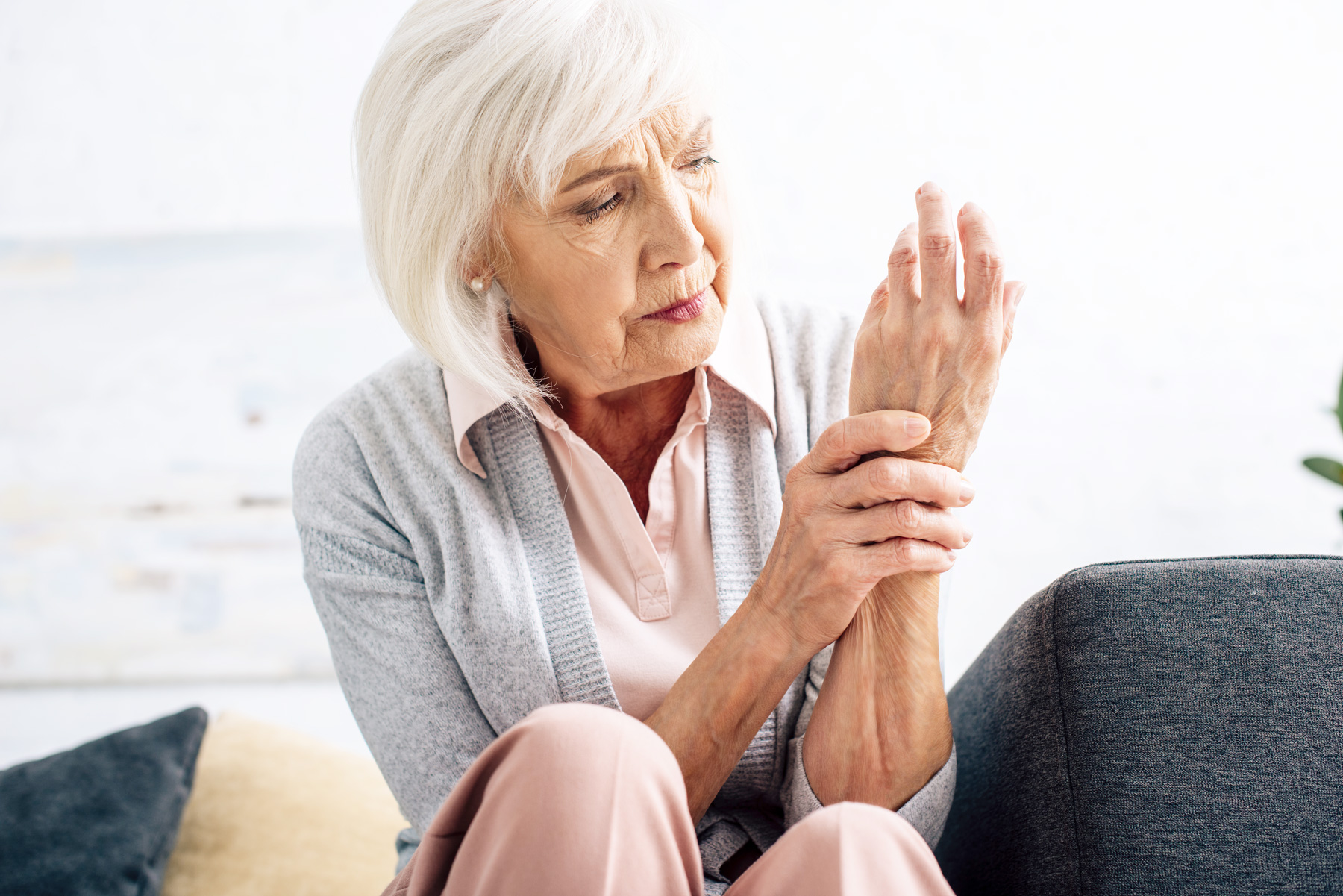

Arthritis is a common, often lifelong, condition that is characterised by pain and inflammation in one or more joint. Around 10 million people in the UK suffer from arthritis; whilst it is increasingly common as we get older, around 15,000 children and young adults are affected by the condition. Other factors that can cause the onset of arthritis include, autoimmune diseases, broken bones and viral or bacterial infections.
There are a variety of types of arthritis, however the most common three are rheumatoid arthritis, osteoarthritis and juvenile arthritis.
Rheumatoid arthritis affects over 400,000 people in the UK. Usually the condition starts when a person is between 40 and 50 years old, and women are three times more likely to be affected than men. This type of arthritis occurs when the lining of the joints becomes inflamed, which can change the joint’s shape and can cause the bone and cartilage to break down – leading to constant pain and loss of function in the joint. The affected joint can sustain long-term damage, which can result in disability.
People with rheumatoid arthritis may also experience problems with other organs and tissues in their body as the condition develops. Osteoarthritis is the most common type of arthritis, with around 8 million people being affected by the condition in the UK. It often develops in people over 50 years of age, however it can occur at any age as a result of another joint-related condition or injury. It is a degenerative that erodes the lining of the cartilage that prevents the bones in a joint from rubbing together. This can make movement more difficult, and as the bone joints begin to rub together the person will begin to experience increasing levels of pain and stiffness. The joints more commonly affected by osteoarthritis are those in the hands, spine, knees and hips.
Juvenile arthritis affects around 15,000 children and young people in the UK, and is an umbrella term for any type of arthritis-related condition that develops in children or teenagers under the age of 18. The most common type of childhood arthritis is juvenile idiopathic arthritis (JIA). JIA can cause pain and inflammation in one or more joints for six weeks or more. The symptoms of JIA often improve with time, meaning the child can lead a normal life.
Due to the various types of arthritis, symptoms will vary from person to person. However, common symptoms can include swelling in and around the joints, pain in the joint accompanied by tenderness and stiffness, red and warm skin over the affected joint, restricted movement of the joints and muscle and wasting and weakness of the muscles.
There is currently no cure for arthritis, and the chronic pain and stiffness it causes can mean that many sufferers become dependent on others to carry out daily tasks. However, with the right support, treatment and lifestyle adjustments a person’s pain can be reduced, joint function can be improved and further damage can be avoided.
Our Arthritis Care and Support
Advance understands that living with, or caring for a loved one who has, arthritis can be a very distressing time. That is why we train our team members to minimise the disruption caused by arthritis by providing the support family, friends and sufferers need to help them cope. Our services are people centred and revolve entirely around the specific requirements of the individual. This approach enables our support assistants to deliver medical, emotional and physical support their clients need in familiar surroundings, and around their established routines, allowing those suffering with arthritis to maintain independence and a good quality of life.
Our support assistants are specifically trained to provide arthritis care and support. They offer assistance ranging from help around the home to more sensitive issues. From household chores, to helping with personal care – such as toileting, bathing and dressing – Advance are there to carry out all the practical care aspects with empathy and discretion, giving family and friends the opportunity to spend significant periods of quality time with their loved one in between.
Our support assistants are also there to offer emotional support, companionship and encouragement. They understand that while helping their clients with the medical aspects of arthritis, such as administering anti- inflammatory tablets or giving post-operative care after a joint replacement, and aiding in practical duties such as shopping and laundry is important, so is chatting about shared interests and creating a comfortable relationship between the support assistant and the client. This is why we ensure you are matched with a support assistant who not only has the relevant skill set, but also has a complementary personality. Our support assistants understand that an important factor of living with arthritis is adapting to any physical limitations, and finding ways to relieve symptoms. They provide a ‘can-do’ attitude, encouraging and providing physical and psychological support.
Our arthritis care and support includes:
Explore our care services.























